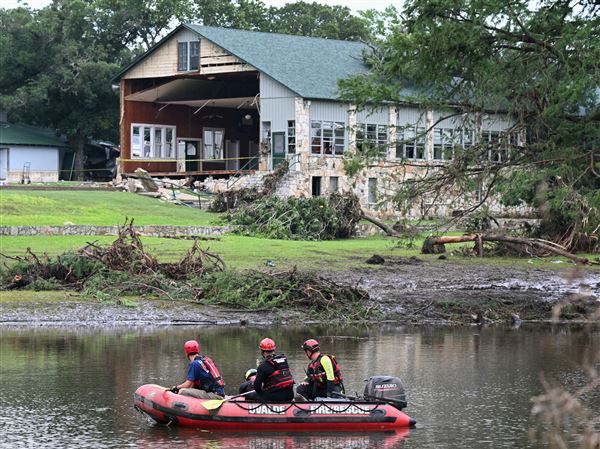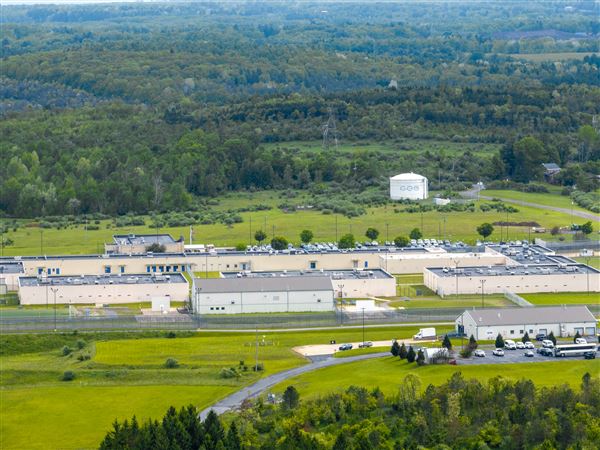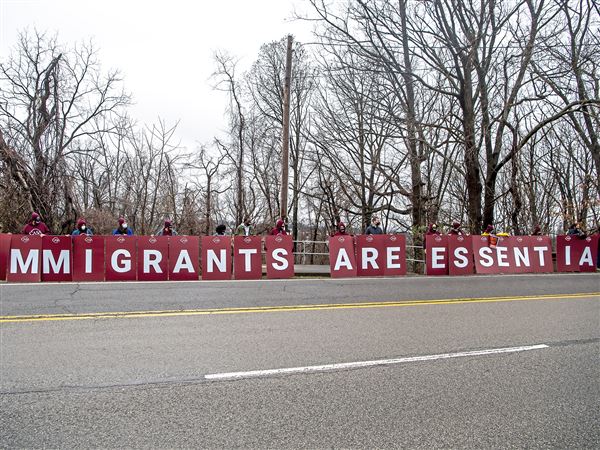In California last year, investigators ran crime-scene DNA through the state database taken from those arrested and convicted in the state and got no match. But what they did find was that the "Grim Sleeper" serial killer's DNA was similar to a man previously convicted of a weapons charge.
The "familial search" that identified the suspect's son led to the July arrest of Lonnie David Franklin Jr., 57, who's been linked to 12 rapes and 11 homicides, and possibly a 12th.
The Grim Sleeper case shows the potential of familial searching -- a method of using crime-scene DNA that cannot be directly matched to a suspect but can identify a direct relative, usually a son, father or sibling, whose DNA is in the system due to a previous arrest or conviction.
In March, investigators used familial searching to arrest Elvis Garcia, 21, in Santa Cruz on charges of sexual assault, robbery and false imprisonment, based on his father's DNA.
State Senate Bill 775, introduced by Dominic Pileggi, the Republican majority leader from Delaware County, would expand the crimes for which DNA samples can be collected and allow familial searching. Mr. Pileggi said his bill would "save a tremendous amount of money in criminal investigation and aid in the arrest of the criminals who tend to be serial perpetrators of crimes."
He echoes what experts also say: that DNA forensic science and familial searching potentially will "prevent the death or serious harm of innocent individuals" by more quickly capturing suspects. The bill would allow law enforcement officials to collect DNA samples from people arrested for felonies and a larger number of misdemeanors. It would also require those samples to be purged automatically from the database if the person is acquitted of the charges or never charged with the crime.
"It changes the law in the list of offenses in which DNA testing is required, and this would be pre-conviction rather than post-conviction," Mr. Pileggi said.
The pros and cons of familial searching were discussed Friday during the Duquesne University symposium "The Changing Face of DNA: the science, law and ethics of familial searching," held by the Cyril H. Wecht Institute of Forensic Science and Law.
Other high profile successes include using a sibling's DNA to positively identify Osama bin Laden after his death, and the arrest of Dennis Rader, the Kansas serial killer now serving life terms after he was identified, in part, through use of his daughter's DNA.
Several experts at the Duquesne event described DNA kinship analysis as an important "truth-finding tool" in finding the right person who committed violent crime. Without it, several rapists and killers wouldn't have been arrested and might have continued to kill.
"It's an elephant in the room and can't be ignored," said Rockne Harmon, a retired a prosecutor in Oakland, Calif., who advocates the use of DNA familial searching. "You don't talk to anybody. You don't roust anybody, and it ends up where it deserves to end up" with identification of the right suspect.
But such DNA searches also raise concern whether such searches can violate Fourth Amendment privacy protections against unreasonable searches and seizures for innocent family members whose DNA is used to identify a family member.
Other concerns include the disproportionate number of African-Americans and Hispanics in the prison system, which would mean minority families could inequitably be subjected to a greater number of such searches than the majority population.
"Every police process has potential for abuse," said Lisa Freeland, the federal public defender for the Western District of Pennsylvania. "This issue is new and hasn't gotten into the courts. Until the court says it's constitutional, it's not."
Another major issue is when can states legally collect DNA samples.
Various states collect samples upon arrest rather than conviction, much the way fingerprints are taken. A key case now before the 3rd U.S. Circuit Court of Appeals involves Ruben Mitchell, who refused to provide a sample after his arrest on drug charges. U.S. District Court Judge David S. Cercone in Pittsburgh ruled in his Mr. Mitchell's favor in November 2009 on claims that it's unconstitutional to collect a DNA sample before conviction.
Only three states currently allow familial testing -- California, Colorado, and Virginia. Various others, including Pennsylvania, are considering it.
Mark W. Perlin, founder and CEO of Cybergenetics, a company in Pittsburgh's Oakland section that produces computer equipment that analyzes and does genetic matching, said DNA evidence, including familial searching, could reduce 300 stranger rapes per day, among other advantages. He said technology was advancing to make identification of relatives more specific.
While the science is solid, Pete Marone, director of the Virginia Department of Forensic Science, said the current issue focused on policy and law.
Privacy is protected, he and others said, because no one's identity is revealed until a direct relative, usually a son or father of the suspect, is identified.
But Michael Risher, staff attorney for the American Civil Liberties Union of Northern California, said collecting DNA from people arrested but not convicted violated the Fourth Amendment. But familial searching done under proper context "doesn't violate the Constitution," he said.
To avoid constitutional violations, he said, such search methods should be subject to statute so that the government rather than law enforcement decides what's proper and constitutional, along with privacy safeguards.
"Law enforcement errs in giving themselves too much power and violating privacy," Mr. Risher said. "Important decisions should be made by the legislature, not police."
First Published: May 14, 2011, 4:00 a.m.
















